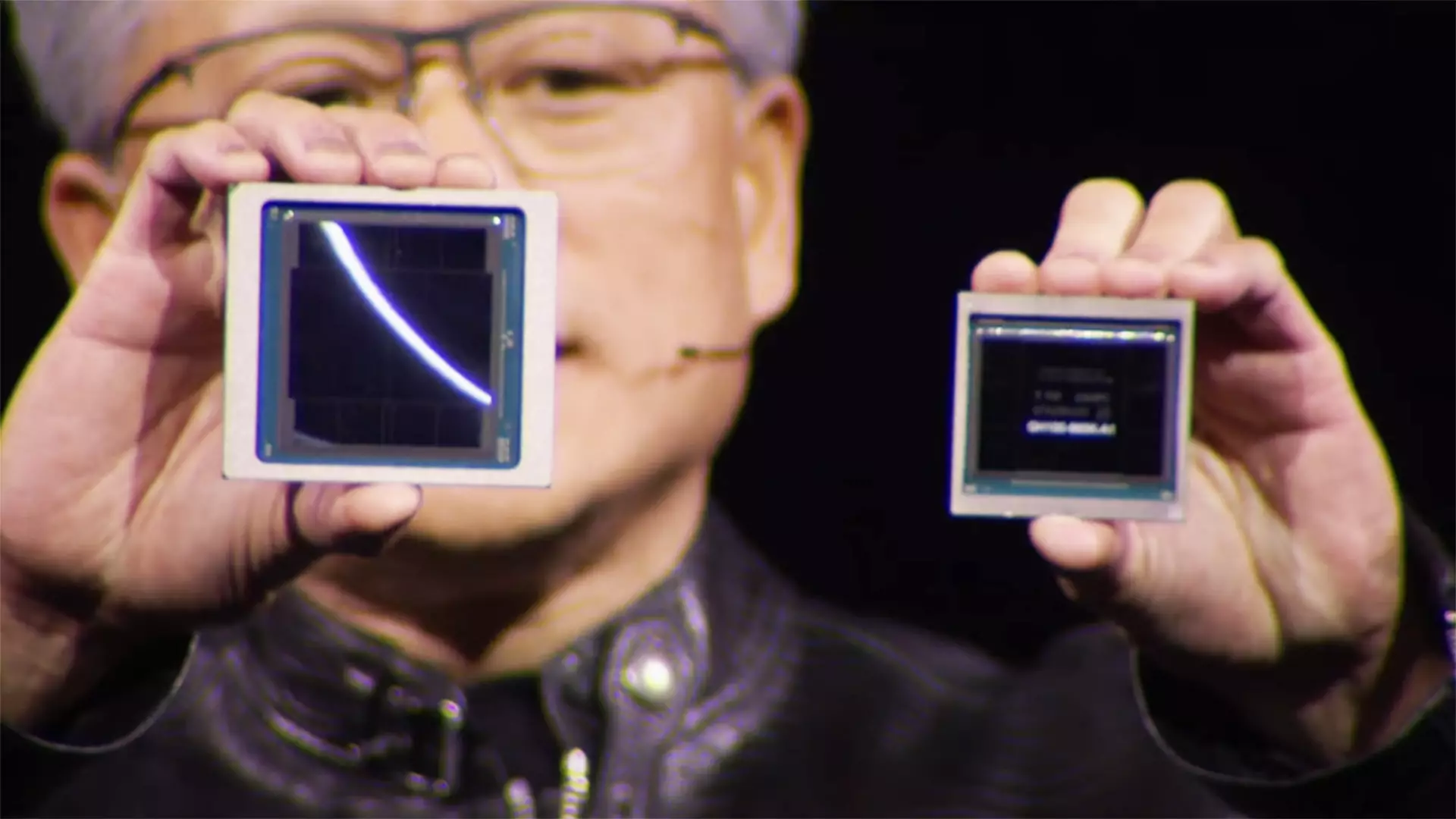The world of technology is evolving rapidly, and with it comes an intricate web of economic and political challenges. One area gaining unprecedented significance is artificial intelligence (AI), specifically in the context of the race for supremacy between the United States and China. The emergence of advanced AI chips from companies like Nvidia has not only revolutionized industries but also raised alarm bells in the realm of national security. As the conversation heats up, legislation and technology straddling the line between innovation and regulation are coming to the forefront, inviting scrutiny and criticism.
The Rising Stakes of AI Technology
Recent developments in AI technology underline how entwined these advancements are with national security interests. The potential for high-end AI chips, such as those developed by Nvidia, to fall into the hands of foreign adversaries—especially China—has prompted U.S. lawmakers to propose measures that sound more like spy movie scripts than serious legislative action. Representative Bill Foster’s proposed bill aims to implement tracking mechanisms that could allow the U.S. government to monitor the whereabouts of AI chips after they have been sold. This introduction of tracking could escalate tensions, transforming technological advancements into tools of espionage control.
While the bill highlights a critical national security issue, it raises deeper questions about the extent to which technology companies can be controlled. Foster asserts that the essential technology for tracking exists already within Nvidia’s chips; this assertion has found some backing from independent technical experts. Yet, amidst the bipartisan support, one must wonder whether such measures would indeed be effective or merely a symbolic gesture against a much larger geopolitical struggle.
Export Controls: A Tightening Grip
The U.S. administration has taken a proactive approach since 2022 to tighten export controls on AI technologies heading towards China. These measures have emerged in response to concerns regarding national security and the potential military applications of AI. Initially, the approach involved a strict bifurcation of countries based on their access to U.S. chips; however, the current discussions have broached the idea of requiring individual licenses for every nation seeking to import these technologies. This decision is vital, given that the repercussions of unrestricted access could fundamentally alter the landscape of technological advancement worldwide.
Despite Nvidia’s calls for the acceleration of American AI technology’s global diffusion, the reality is that restrictions are unlikely to ease. In fact, the financial implications for companies like Nvidia are evident. Reports indicate that the semiconductor giant expects to incur substantial charges as a result of these export restrictions—up to $5.5 billion—impacting their inventory and production commitments. This situation illustrates a profound dilemma: the balance between fostering economic growth and maintaining national security.
The Shadow of Smuggling and Counterfeiting
Concerns regarding technology smuggling have further complicated the narrative, sparking fears that restricted U.S. chips could find their way into Chinese hands despite stringent measures. Companies like TSMC, which have experienced significant losses due to inadvertent chip distributions to adversaries, highlight the vulnerabilities present in the semiconductor supply chain. Nvidia’s claims that “China is right behind us” in the AI race only serve to underscore the urgency of the issue. The implications for businesses extend beyond profit margins and directly into the realms of ethics and accountability.
While there are valid concerns about how to safeguard American technological advancements, the efficacy with which tracking mechanisms could be employed is questionable. Remote chip disabling, a proposed solution, raises serious concerns about circumventing such security measures. The notion seems fantastical at best; can one realistically impose an infallible system to prevent a resourceful adversary from reverse-engineering or sidestepping these controls? While it’s easy to underestimate the government’s technological capabilities, this skepticism signals a potential overreach in the role of technology as a regulatory mechanism.
The Bigger Picture: A New World Order?
Even if the proposed tracking and disabling systems for chips were to be successfully implemented, a larger geopolitical context looms over their implications. The desire for self-sufficiency in technology may drive countries like China to develop indigenous alternatives, thereby reducing their reliance on U.S. chips altogether. This shift represents a complex and critical evolution in international relations, as nations prioritize technological independence over interdependence. As the world watches these titanic tides of innovation and security unfold, the ultimate loser in this scenario could be companies like Nvidia rather than the countries engaging in this high-stakes competition.
In this environment of uncertainty, the future of AI chips holds both promise and peril. Companies in the tech sector are on a tightrope between maximizing their innovations and respecting the regulatory frameworks that govern their operations. The path ahead is fraught with challenges, but the relentless pursuit of AI advancement must not come at the expense of security nor lead to the isolation of innovation on a global scale. The interplay between technology, legislation, and geopolitics will shape the future of the AI landscape in profound ways—an outcome that sparks both hope and trepidation.

